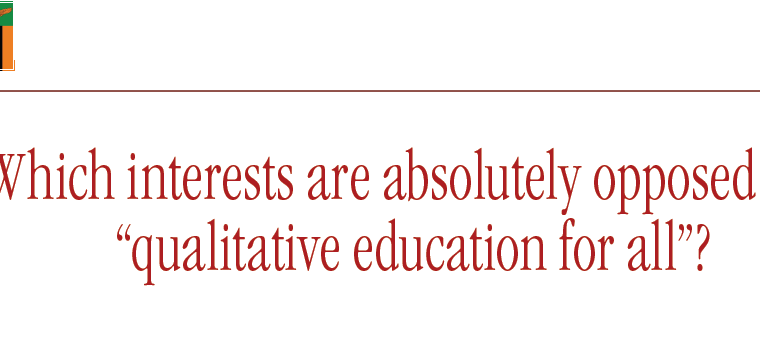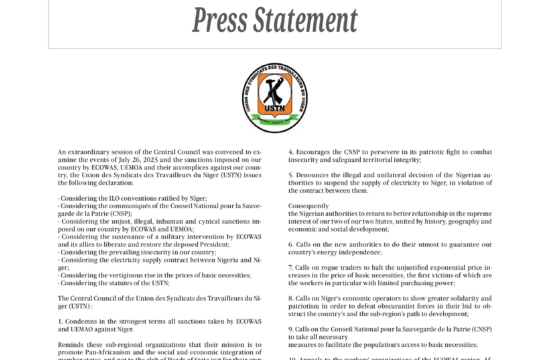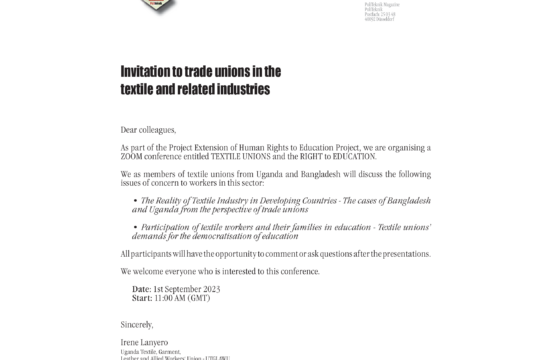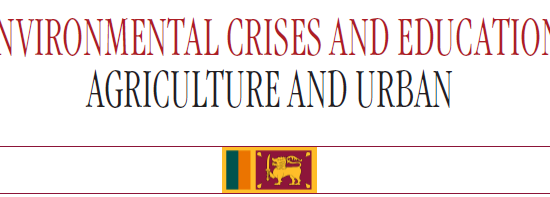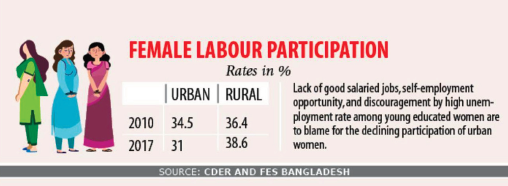Joseph Chishimba
Law Student at the Zambian Open University
In an era driven by technological innovation, global connectivity, and a quest for equitable progress, the pursuit of qualitative education for all remains a fundamental aspiration. Yet, beneath the surface of this noble endeavor lies a complex web of interests that stand in stark opposition to the realization of this goal. These interests, often shrouded in political agendas, economic disparities, and systemic biases, contribute to a pervasive inequality in educational access and quality. This article, authored by Joseph Chishimba, sheds light on the underlying forces that vehemently resist the march towards a world where every individual can benefit from a qualitative education.
The Struggle for
Educational Resources
At tthe heart of the battle for universal qualitative education lies the challenge of resource allocation. While numerous countries are blessed with abundant wealth and resources, they often fail to distribute these equitably among their citizens. The interests of those who control these resources — whether it be governments, corporations, or privileged individuals — may lead to policies that favor specific groups while neglecting marginalized communities. This unequal distribution perpetuates a cycle of subpar education for certain segments of society, denying them the opportunity to develop their full potential.
Maintaining Socioeconomic
Hierarchies
Society’s power structures often thrive on maintaining the status quo. For the privileged elite, access to high-quality education is not merely a means of personal growth but also a means of perpetuating their socioeconomic dominance. By restricting access to qualitative education, these interests can ensure that certain groups remain subservient and unable to challenge the established order. This ensures a steady supply of cheap labor and limits the emergence of new leaders who might disrupt their stranglehold on power.
Preserving Ideological Control
Qualitative education has the transformative power to cultivate critical thinking, empathy, and a broader worldview. However, those who seek to maintain strict ideological control over a population may perceive these qualities as threats. Such interests, often entwined with authoritarian regimes or extremist ideologies, may deliberately curtail education that promotes independent thought. By restricting access to diverse and comprehensive knowledge, they can manipulate public perception and sustain their grip on societal narratives.
Profit-Driven Education Models
The commercialization of education has led to the emergence of profitdriven educational institutions that prioritize financial gains over educational outcomes. These interests tend to prioritize enrollment numbers and revenue streams, leading to compromises in curriculum quality, teacherstudent ratios, and infrastructure. For-profit institutions might resist the notion of universal qualitative education because it challenges their business model, potentially diluting the exclusivity and premium they place on education.
Combatting the Opposition
To confront the interests that oppose a qualitative education for all, a multi-faceted approach is essential. Governments must commit to robust policy frameworks that ensure equal distribution of educational resources and opportunities. Collaborative efforts among nations, organizations, and educators can help dismantle the barriers created by political agendas and profit motives.
Furthermore, advocacy for educational equity and societal transformation is paramount. Grassroots movements, driven by educators, parents, students, and activists, can build public pressure to drive change from the bottom up. Raising awareness about the corrosive impact of unequal education and fostering a collective demand for reform can erode the foundation upon which these opposing interests thrive.
In conclusion, the path to universal qualitative education is marred by a myriad of interests seeking to preserve inequality and control. By understanding these forces, society can mobilize and strategize to dismantle the barriers that impede progress. Only through collective action and a steadfast commitment to the transformative power of education can we break the chains that hold back individuals and entire communities from realizing their fullest potential. „Education is the passport to the future, for tomorrow belongs to those who prepare for it today.“ – Malcolm X

